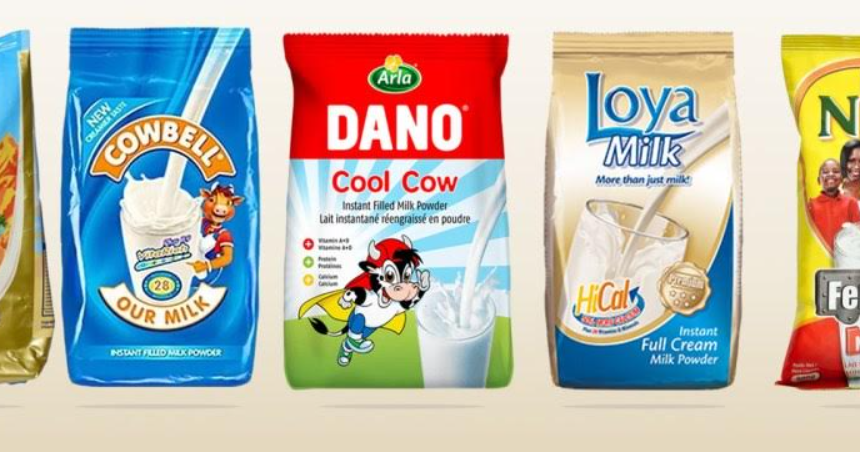By Ibidunni Banjoko
Milk is a staple food widely consumed by almost everyone across the globe. Milk is regarded as complete food as it is a rich source of soluble and insoluble protein. Both of these groups of milk proteins are considered to be of excellent quality, with a high proportion of essential amino acids and good digestibility. It also contains fats and carbohydrate, vitamins and minerals necessary to sustain growth and development through life. Because of the importance of milk in early life, the World Health Organisation (WHO) has recommended exclusive breastfeeding for the first six months of life and milk-based breakfast for growing up years.
Milk production is therefore a business with ready market. In Nigeria, there has always been fierce rivalry in dairy industry with players trying to outdo each other in terms of value proposition through campaigns and innovations.
According to MARKETING EDGE survey, most consumers are driven by perception. Olushola Byass, a drink vendor said Dano is more preferable for her because it is creamy to her taste and also affordable. Racheal Joelson, a banker, prefers Loya because, according her, it’s creamy and rich in vitamins, and a little drop of it in her tea is fine. Abiodun Ademide prefers Peak Milk because of the quality and the powdered variant dissolves easily in water. For Bolaji Akinwande, a student, Hollandia is the milk of choice because it’s sweeter and creamier.
Omitaomu Isaac, a grocery store owner at Orile Iganmu said he sells more of Peak, Loya, Dano and Hollandia milk than others brands. Another grocery store owner at Alaba International Market said Loya milk used to be at the top of the market, but with increase in the price, consumers have shifted their consumption to Dano milk which is cheaper than Loya. The dealer appealed to brands to consider the pocket of the consumers by introducing quality dairy products at cheaper rate.
Mary Ajose who sells groceries at Yaba said she makes more sales on Dano, Hollandia and Peak milk than others. She also added that people buy Dano because it is creamy and cheaper. According to her, some prefer Hollandia milk because of the packaging and quality, while some consumers take it without adding anything. “For Peak milk, those that are used to it don’t like to change their brand,” she said.
Marketing intelligence revealed that mostly the rich go for Peak milk; the ordinary people always prefer Dano 360g, which goes for N750, while Peak goes for N900, and Miksi also goes for N750.
Peak milk, a product from the stable of FrieslandCampina WAMCO, an affiliate of Royal FrieslandCampina of the Netherlands is still the unmistakable market leader in the dairy segment of the market in Nigeria. It has been in the Nigeria market for over 66 years and despite the introduction of various brands. It remains the brand of choice.
Promasidor Nigeria introduced powdered Cowbell milk in smaller sachets in 1993 which gave average Nigerians access to branded milk at the time. Promasidor’s effort also paid off significantly and was able to win for her, a considerable segment of the milk market. Cowbell also tactfully adopted “Our Milk” as a pay-off line thus giving the consumers a sense of belonging.
Nido, a product of Nestle Nigeria Plc which used to be the leader in the powdered milk segment in the 70s and 80s has lost the position and the greater size of the market to competitors.
The smaller brands such as Jago, owned by Sosaco Nigeria and Nunu from PZ (recently acquired by FrieslandCampina WAMCO), are not doing so well in the market.
As saturated as the milk and dairy market is, new products are still making their ways into the market. This underscores the huge market and the fierce battle that is going on in that segment of the market. To beat the war, some brands have decided to create products for niche marketing. For instance, Three crowns which is also from the stable of Friesland Campina produces low fat and skimmed milk targeting mothers, the elderly, the obese, people battling with high cholesterol. Diary brands have also adopted different advertisement strategies, both in digital and traditional media platforms to appeal to consumers.







Comment
No comments found.